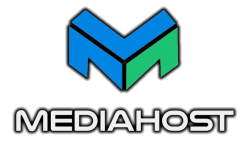What is a CMS (Content Management System)?
What is a CMS?
A Content Management System (CMS) is a software application that allows users to create, edit, manage, and publish digital content on a website without requiring extensive coding knowledge. Think of it as a user-friendly interface for building and maintaining your website.
How Does a CMS Work?
A CMS typically consists of two main components:
- Content Management Application (CMA): This is the front-end interface where you log in to create and manage your content. It provides tools for writing, editing, uploading images, and formatting your content.
- Content Delivery Application (CDA): This component works behind the scenes, taking the content you create in the CMA and displaying it to your website visitors. It handles the technical aspects of delivering your website content to the internet.
Why Use a CMS?
- User-friendliness: CMS platforms offer intuitive interfaces that make it easy for anyone to manage website content, even without technical skills.
- Cost-effective: Using a CMS can save you money on web development costs as you can update and manage your website without hiring a developer for every small change.
- SEO-friendly: Many CMS platforms come with built-in SEO tools and features that help optimize your content for search engines.
- Collaboration: A CMS allows multiple users to work on the website simultaneously, making it ideal for teams.
- Scalability: As your website grows, a CMS can easily accommodate your expanding content and traffic needs.
Popular CMS Platforms:
- WordPress: The most popular CMS, known for its flexibility, vast plugin library, and ease of use.
- Drupal: A powerful and highly customizable CMS, suitable for complex websites.
- Joomla!: A versatile CMS that offers a good balance between ease of use and flexibility.
Choosing the Right CMS:
The best CMS for you depends on your specific needs and requirements. Consider factors such as:
- Technical expertise:
- Budget:
- Website size and complexity:
- Desired features:
By carefully evaluating your options, you can choose the CMS that empowers you to build and manage your website effectively.
















